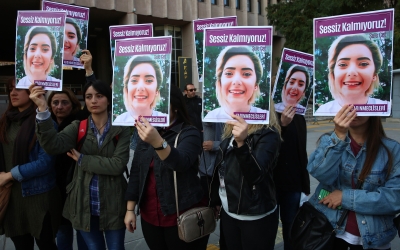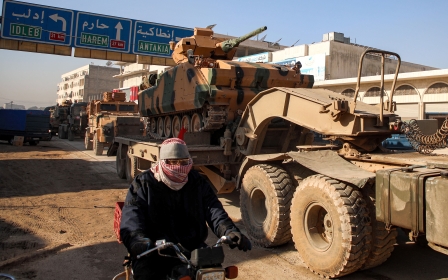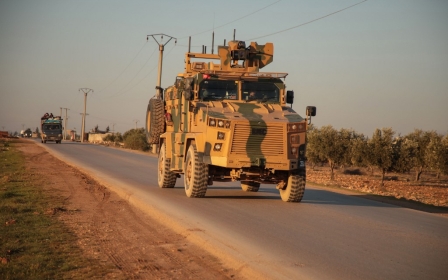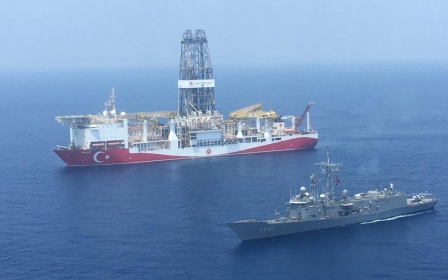Debt-ridden Ankara could become an example for the world: Mansur Yavas
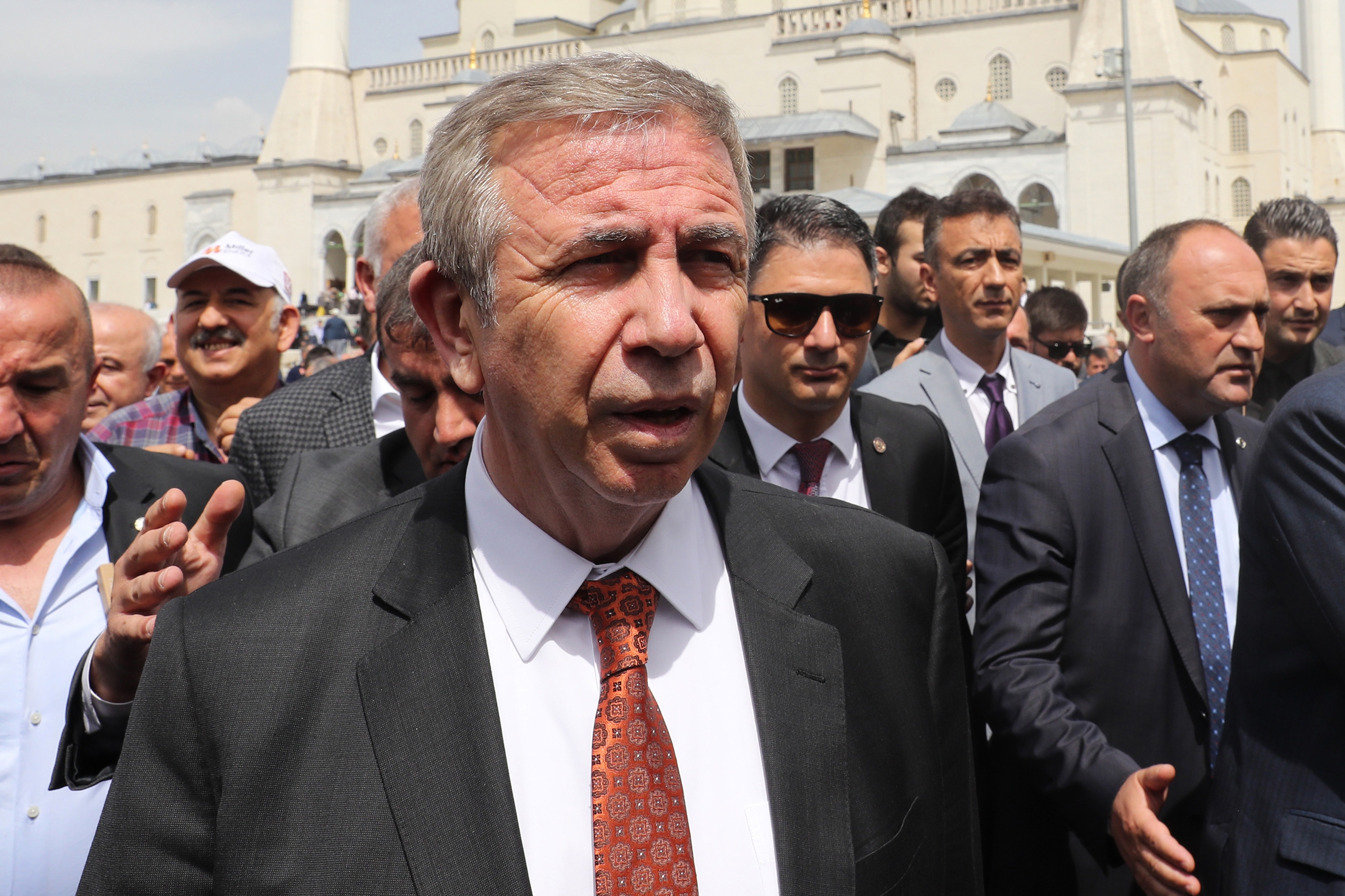
The mayor of the Turkish capital has promised to make Ankara an example for "the whole world", despite inheriting a city owing creditors more than $1 billion.
Since coming to office in April 2019, ending around 25 years of governance by the ruling Justice and Development Party (AKP), Mansur Yavas has prioritised financial prudence and technocratic reform in a city ridden by debt.
Compared with his primary predecessor Melih Gokcek - who before being forced out by Ankara municipality in 2017 was notorious for spreading conspiracy theories and spending money on bizarre vanity projects involving robots and dinosaurs - Yavas has attempted to emphasise an image of openness and good governance.
He cited the fact that a live-stream of a committee putting out tenders for purchasing steel pipes had been viewed by what was an estimated 400,000 people as an indicator that the electorate valued transparency in their public officials.
"It may be very boring, it may be very procedural, but people keep watching until they see how it concluded," he told an audience at the Chatham House think tank in London on Monday.
New MEE newsletter: Jerusalem Dispatch
Sign up to get the latest insights and analysis on Israel-Palestine, alongside Turkey Unpacked and other MEE newsletters
Monday saw the announcement that Turkey's inflation rate had risen to 12.5 percent, a higher than expected figure. Although fairly tame compared with a currency crisis in 2018 which saw the value of the lira plummet, it still presents an uneasy reminder of the fragility of the country's economy.
Yavas said that a combination of a lack of trust in Turkey's institutions and an unwillingness by the government to honestly state the scale of the problem was perpetuating his country's economic difficulties.
"The whole country is losing in terms of trust and confidence in state institutions, including even the religious affairs department," he said.
'The electors decided to lend their support to democracy in Turkey and they want real sovereignty for the people and they want transparency and real accountability…instead of favouritism and waste'
- Mansur Yavas, mayor of Ankara
"So they declared 12.5 percent was the annual rate of inflation - but if you consider recent increases in terms of the high-speed rail ticket prices, we can see the inflation rate is way above what was declared."
He said the priority in Turkey had to be "independence of judiciary, increasing freedom and transparency" as a means of tackling the economic crisis, adding that countries elsewhere that achieved this "enjoy a much higher national income".
"We turn our face to the West and despite all the mishaps and other aspects, the rule of law, free trade and a liberal economy is the basis of our democracy," he explained.
In a booklet released in July 2019 by Yavas' Republican People's Party (CHP) to mark 100 days in the job, the party claimed that the municipality had been left 8.4 billion liras ($1.4bn) in debt by the previous administration.
The same booklet claimed that Yavas' administration had managed to generate a 136 million lira ($24.6m) surplus since coming into office.
"All the country watches us and even some citizens from Europe watch us. Many mayors including the AKP and other parties' mayors started broadcasting their tendering processes across the internet," he said.
He added that every one hundred days his administration distributed flyers explaining what they were working on.
Syrians are 'guests'
Yavas first ran for mayor of Ankara in 2014 - the result of which saw him narrowly lose to Gokcek amid accusations of voting irregularities.
His victory last April came after a re-run when the AKP said there had been irregularities in the count.
"There is a very high rate of voting... they want real sovereignty for the people and they want transparency and real accountability… instead of favouritism and waste," he said.
2019 saw the CHP, party of the founder of the republic Mustafa Kemal Ataturk, taking control of both Istanbul and Ankara, the biggest victories for the party in decades.
The victories have also, however, raised questions about the party's future and what kind of alliances it might need to build if it wants any chance of taking power in government.
The campaign for the election of Ekrem Imamoglu in Istanbul was spearheaded by Canan Kaftancioglu, one of the leading lights of the party's left-wing, who sees the party's future as a socially liberal, social democratic party that should reach out to Turkey's minorities (especially Kurds) and take a critical stance on Turkey's foreign policies, especially with regards to Syria.
By contrast, Yavas stems from the party's conservative, nationalist wing. Until 2013, Yavas was a member of the far-right Nationalist Movement Party (MHP), which currently sits in parliament in coalition with the AKP.
During selfies and other media appearances, Yavas regularly flashes the "wolf sign" associated with Turkish ultra-nationalism and, in particular, the Grey Wolves organisation, a former paramilitary group responsible for killing Kurds and leftists during the 20th century.
Shortly after his victory became apparent in the April elections, video footage emerged of supporters at his party headquarters chanting an Islamic slogan often associated with the far-right in Turkey.
Speaking at Chatham House, Yavas was keen to support the government's crackdown against the Kurdistan Workers Party (PKK) and other pro-Kurdish groups in Syria and criticised Turkey's "European partners" for their support for the PKK-linked Peoples Protection Units (YPG) in Syria.
He also defended the government's position on Syrian refugees.
"[We have] 30,000 or so families in Ankara with support from the EU - we are already trying for their integration, but integration is not a step to be taken by Turkey. Europe has a double standard on this issue," he said, adding that he did not believe "guest" was an unfair term to use to describe them.
"A country in Europe goes through strict rules even taking 70 refugees when we have to deal with millions... We have a saying in Turkey: 'when a nightingale has been placed in a gold cage, they still have a longing for their motherland'."
However, despite his apparently conservative credentials, he has also been at times vocal on the issue of violence against women in Turkey and the need to tackle social attitudes towards women.
In December, following the murder of ballerina Ceren Ozdemir, Yavas tweeted that there needed to be more legislation to tackle the "femicide" epidemic in Turkey - which saw 430 women killed in 2019 alone, according to the We Will Stop Femicide platform.
He also participated in the opening of an open-air installation in Ankara in November highlighting the crisis of violence against women.
"It is obvious that we have to do a lot more - refuges for women's protection is our priority and we are involved in collaboration with international and national organisations on this," he told Chatham House.
"In the long term, we have to educate our children and young, that is very important.”
CHP revival?
Last year saw a revival in the fortunes of the CHP after many years in the wilderness. Though the party of Ataturk has not had a majority government in Turkey since the '50s, they now control the mayoralties of Turkey's three largest cities, even winning in districts that never voted for them in the past.
Yavas suggested that dissatisfaction with the AKP was on the increase, not least with their decision in 2018 to adopt a presidential system, a long-running demand from the party.
"When we started the presidential system, they gave the impression we would have huge successes in every area. However, we can see that the presidential system did not help in solving problems… I think the government even wants to go back to a parliamentary system," he said.
"Our party aims to come to power as soon as possible and bring back the parliamentary system as soon as possible."
However, when asked about how long he thought Erdogan would actually rule in Turkey, he declined to respond.
Middle East Eye delivers independent and unrivalled coverage and analysis of the Middle East, North Africa and beyond. To learn more about republishing this content and the associated fees, please fill out this form. More about MEE can be found here.


